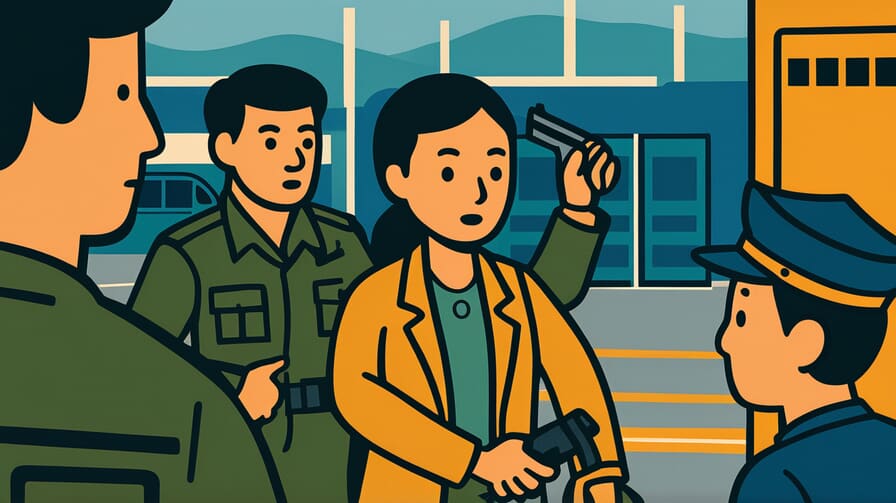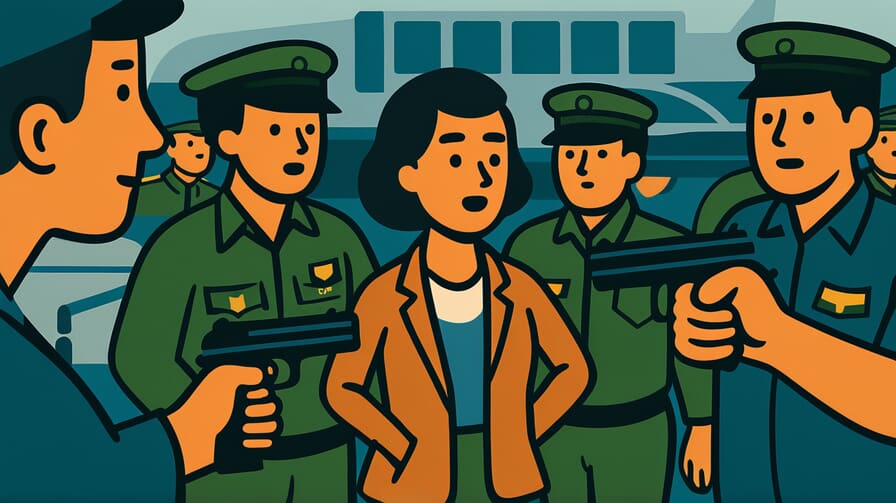[Disclaimer] This article is reconstructed based on information from external sources. Please verify the original source before referring to this content.
News Summary
The following content was published online. A translated summary is presented below. See the source for details.
In August 2025, Hong Kong denied a work visa renewal to Bloomberg reporter Rebecca Choong Wilkins without explanation, marking the latest incident in a series of press freedom restrictions. This denial follows a pattern of at least eight journalists being refused visas or entry since the implementation of the 2020 National Security Law. Meanwhile, border tensions between Cambodia and Thailand escalated into armed conflict in late July 2025, resulting in a mass exodus of approximately 400,000 Cambodian migrant workers from Thailand within a five-day period. The conflict, which involved artillery exchanges and air strikes near contested temples, led to border closures and a fragile ceasefire. The situation has severely impacted both countries’ economies, with Thailand facing labor shortages in key sectors and Cambodia losing significant remittance income. These events highlight the ongoing challenges to press freedom in Southeast Asia and the vulnerability of migrant workers to geopolitical tensions.
Source: globalvoices
Our Commentary
Background and Context

The denial of work visas to foreign journalists in Hong Kong is part of a broader trend of eroding press freedom that began with the implementation of the National Security Law in 2020. This law, coupled with the Article 23 law enacted in 2024, has dramatically reshaped Hong Kong’s media landscape. Concurrently, the Cambodia-Thailand border dispute has deep historical roots, with tensions periodically flaring up over contested territories and temples. The recent escalation has brought to light the precarious situation of migrant workers who form a crucial part of Thailand’s workforce and contribute significantly to Cambodia’s economy through remittances.
Expert Analysis
The deterioration of press freedom in Hong Kong represents a significant shift from its former status as a free media hub in Asia. The visa denial to Rebecca Choong Wilkins is not an isolated incident but part of a systematic approach to control information flow. This trend aligns with Hong Kong’s dramatic fall in the Reporters Without Borders Press Freedom Index, now ranking 140th globally in 2025.
The Cambodia-Thailand border conflict highlights the fragility of regional stability and its immediate impact on vulnerable populations, particularly migrant workers. The mass exodus of Cambodian workers from Thailand underscores the interconnectedness of Southeast Asian economies and the potential for geopolitical tensions to disrupt labor markets and economic stability.
Key points:
- Hong Kong’s press freedom has reached a historic low, with legal and institutional mechanisms actively suppressing independent journalism.
- The Cambodia-Thailand border conflict has led to significant displacement of migrant workers, affecting both countries’ economies.
- Diplomatic efforts to resolve the border dispute have been hampered by historical grievances and nationalist politics.
Additional Data and Fact Reinforcement
The following statistics underscore the severity of the situations in Hong Kong and at the Cambodia-Thailand border:
- Hong Kong’s press freedom ranking fell from 18th in 2002 to 140th in 2025.
- Approximately 1 to 1.2 million Cambodian workers were in Thailand before the conflict, with 400,000 leaving in just five days.
- Remittances from Cambodian workers in Thailand contribute over 6.5% to Cambodia’s GDP, estimated at 40-65 billion baht annually.
Related News
These events are part of a broader pattern of challenges to democratic freedoms and labor rights in Southeast Asia. Similar concerns have been raised about press restrictions in other countries in the region, while labor migration issues continue to be a point of contention and negotiation among ASEAN nations.
Summary

The concurrent crises of press freedom in Hong Kong and the Cambodia-Thailand border conflict illustrate the complex interplay between political control, regional tensions, and economic interdependence in Southeast Asia. These events serve as a stark reminder of the fragility of democratic institutions and the vulnerability of migrant workers to geopolitical shifts, underscoring the need for robust international mechanisms to protect press freedom and labor rights in the region.


